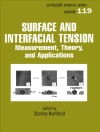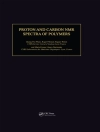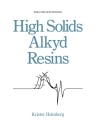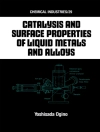Based on results previously restricted for military use and inaccessible to the public, this practice-oriented handbook introduces the use of enzymes for fast and efficient decontamination of B/C weapons in various scenarios, including terrorist attacks. It draws on the internationally recognized technological leadership of the German armed forces, whose anti-B/C technology is among the most advanced worldwide. The text is rounded off with a look at future perspectives.
Cuprins
History of biological warfare agents
History of chemical warfare agents
Monitoring and New Threats of C/B Weapons
Biological warfare agents
Chemical warfare agents
Decontamination of biological warfare agents
econtamination of chemical warfare agents
Introduction to Enzymes
Hydrolytic enzymes
Oxidative Enzyme
Medical Aspects
Microemulsions as carriers for decontamination agents
Immobilisation of enzymes
The road ahead
Despre autor
Andre Richardt is the head of Biological and Chemical Decontamination at the German Armed Forces Institute for Protection Technologies in Munster, Germany. Having obtained his degrees from the universities of Cologne and Freiburg, he spent most of his career working for the German armed forces in biological and chemical decontamination. He is also a lecturer at the Helmut-Schmidt-University in Hamburg and a member of various international working groups in weapons decontamination.
Marc-Michael Blum currently works in Munich as an independent contractor of the German army medical corps. He studied chemistry at the Technical University Braunschweig, the Humboldt University Berlin and the University of Birmingham, UK. As a Ph.D. candidate he worked in the group of Prof. H. Rüterjans at the J. W. Goethe University in Frankfurt on the enzyme DFPase from squid. He serves as a reserve officer at the German army NBC defense school, is a member of the Insitute of Strategic Studies in London. His research interest include enzyme mechanisms and structural biology with a recent focus on neutron diffraction. In the field of biological and chemical warfare he is interested in new decontamination and detection technologies as well as arms control and disarmament.












